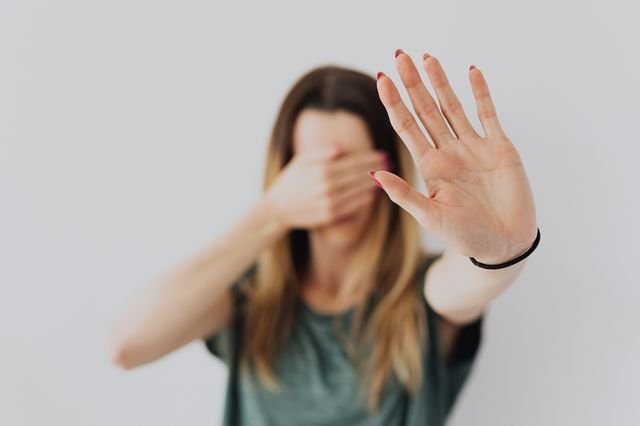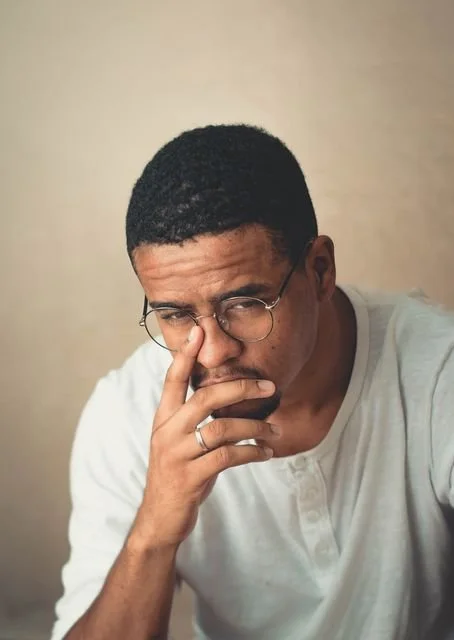The presence of anxiety in your life can alert you to the presence of a threat or danger. The bodily sensations of the ‘flight-flight-freeze’ response can motivate you to identify the source of danger and take action to resolve the threat. Your body returns to its normal state.
But what if the source of the threat is vague or unresolved?
For example, many of my clients who struggle with anxiety or panic attacks talk about how the panic seems to come from nowhere. They cannot identify a specific trigger. So, even when the panic attack goes away, some of the anxiety remains. You have to stay on alert. If you don’t know where the anxiety coming from, you don’t know when it will show up again.
Another problem. What if the source of the threat is not some external situation you can address? What if the source is your own internal thoughts and feelings?
Anxiety usually begins as bodily sensations. You feel shortness of breath or tightness in your chest or shoulders. Your hands get clammy. Your mind labels these normal parts of the fight-flight-freeze response as anxiety. Your mind tells you anxiety is not a good thing, and it goes to work. Where did this anxiety come from? Why is showing up now? What do I need to do to get rid of it? This keeps happening; why can’t I control it?
Instead of anxiety being a normal and natural part of your life, you start to get anxious about being anxious.
One of the ways people try to deal with anxiety is to control it. Anxiety doesn’t feel good, and it doesn’t feel helpful, so it makes sense to try and control it. And one of the main ways you can try to control anxiety is to avoid it. There are a variety of ways to do this.
Be hypervigilant to the signs of anxiety.
Once an anxiety attack subsides, it seems like the best thing to do is let it pass and go on with your life. But while your body has calmed down, your mind has not. Your mind tells you that need to be on the alert. After all, if it showed up unexpectedly before, it could do so again. So when you feel a slight tightness somewhere in your body—something that happens all the time mind—your wonders: Uh oh, could this be the anxiety showing up again.
2. Have an escape plan.
The mind doesn’t stop with the meaning it gives to bodily sensations. In an effort to protect you, it will go back through your past and identify situations when the anxiety showed up. As you prepare to be in those situations again, it will help you come up with an escape plan if the anxiety becomes too much. If you are going to a restaurant, you may ask for a table close to the door. You may develop an excuse that you can share in case you have to leave. And the whole time you are there, it is hard to be present with your friends because you are looking for any signs of anxiety.
3. Stay away from anxiety-producing situations.
Eventually, instead of creating an escape plan, your mind convinces you to stay away from any situations that might provoke anxiety. Your mind creates scenarios of the things that can go wrong and all the ways the anxiety can show up. It makes more sense to stay away. Of course, what your mind leaves out is that this event was something that you were really looking forward to enjoying.
The paradox of anxiety is that the more we try to control it, the worse it can get. In order to avoid your anxiety, your mind has to be thinking constantly about it, and the anxiety becomes more present in your life.
So what can you do? In my work with treating anxiety, I teach a variety of practices that allow you to be present with the thoughts and feelings of anxiety without getting caught up in them or trying to control them by avoidance. This mindful acceptance gives you the psychological flexibility you need to commit to actions that you find meaningful, even in the presence of the anxiety. Learn more by visiting my anxiety treatment specialty page.



